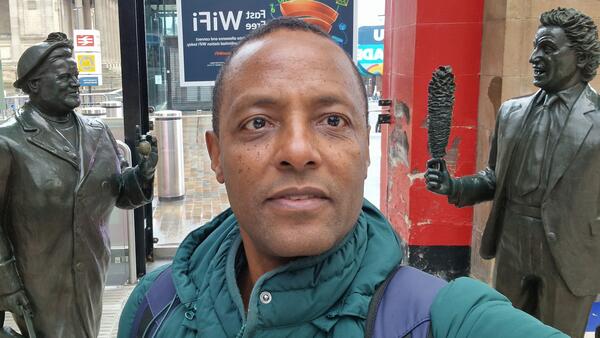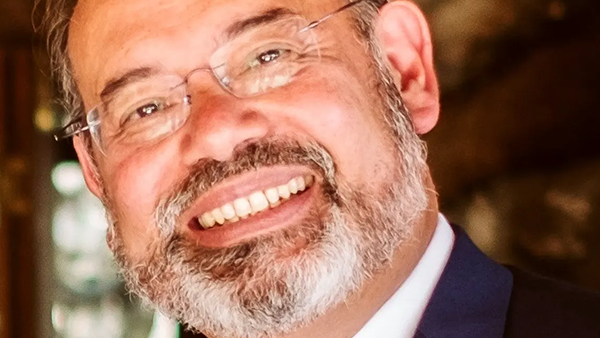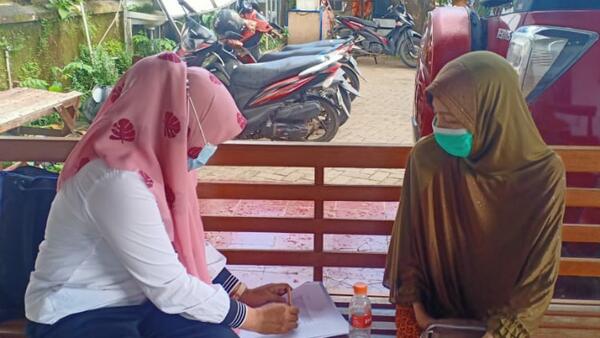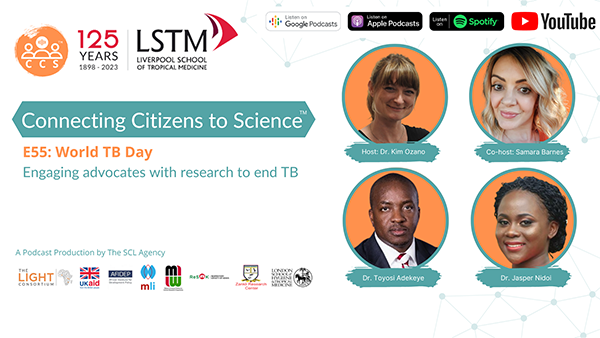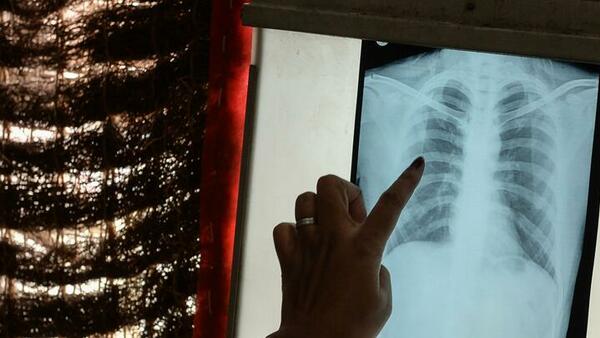
World Tuberculosis Day 2023
'Yes! We can end TB!'
The theme for World TB Day, 24 March 2023, is “Yes! We Can End TB.”
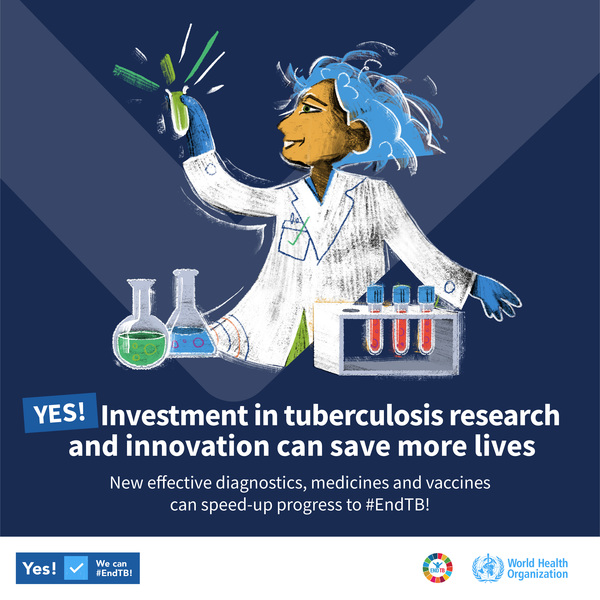
Kerry Millington, Co-Chair UK Academics and Professionals to End TB (UKAPTB), and lead researcher at the LIGHT research programme.
The ambition is that through our collective power we can recover from the impact of COVID-19 and achieve the United Nation’s Sustainable Development Goal of ending TB by 2030.
As LSTM celebrates its 125th anniversary, ending TB remains at the heart of our mission to improve health outcomes in disadvantaged populations globally. Our collaborative education, research, and knowledge exchange helps us reach more people with TB, making the global TB response more equitable, inclusive, gender-sensitive, and people-centred. LSTM collaborates in Liverpool through LIV-TB, globally via the SPARKS network, and with fellow social scientists through SSHIFTB and the Union Working Group on Gender Equity in TB.
The LIGHT research programme, funded with UK aid, works with partners in Africa, and local and global stakeholders. It provides new evidence on the effectiveness of gender-sensitive approaches to health care for people with TB in urban, HIV-prevalent settings. New strategies to improve community-based diagnosis and care for people with TB are vitally important.
The new START 4-All programme, funded by Unitaid, will develop and evaluate how to scale-up existing and new TB diagnostic combinations, to improve screening and increase access to testing in community and primary care settings. Our dear friend and colleague, the late Professor Luis Cuevas, started this programme.
In Nepal, the Horizon 2020-funded IMPACT-TB project, led by Dr Maxine Caws with the Birat Nepal Medical Trust (BNMT), has shown that actively finding people with TB, increases TB diagnoses, reducing care-seeking costs of people from underserved communities. Also in Nepal, LSTM’s Dr Tom Wingfield is working with BNMT on the Joint Global Health Trial’s funded ASCOT pilot trial to identify and address social determinants and consequences of TB.
TB is expected to account for 25% of all cases of antibiotic resistant disease, shortly. Professor Bertie Squire, Reader Eve Worrall, and Health Economist, Laura Rosu contributed to an LSTM-led economic evaluation of bedaquiline-containing multidrug resistant TB treatment, through the STREAM trial. It showed all-oral 9-month treatment plans worked but weren’t cost-effective for many countries, due to the cost of bedaquiline. LSTM’s Dr Naomi Walker is studying drug resistance patterns in Eastern DRC, alongside the Catholic University of Bukavu, whilst her RNA (ribonucleic acid) analysis of immune responses, during treatment of HIV-associated TB, is funded by the Director’s Catalyst Award.
LSTM’s Prof. Giancarlo Biagini’s team is investigating the pharmacology and resistance of TB drugs and working on pre-clinical projects to develop new inhibitors, funded by the MRC and GCRF, with national and international academic partners and non-academic partners like TBAlliance and pharma. The team is also helping to develop a TB human challenge model to support new therapeutics and vaccine studies.
Elsewhere, The Medical Research Foundation recently awarded Dr Tom Wingfield and Dr Celso Khosa a Dorothy Temple Cross International TB Collaboration Award to conduct the SAFEST-1 MDR-TB study evaluating whether video-observed therapy is suitable for people with drug-resistant TB in Mozambique.
Progress is being made through new TB tests; shorter, more efficient treatments; person-centred support packages; and new vaccines that show promise. However, research must continue to be translated into practice at scale to have a real-world impact on the communities most affected by TB.
The second United Nations High-Level Meeting (UNHLM) on TB takes place on Friday, 22 September 2023. Following the Covid-19 infodemic there is increasing value being placed on trusted and credible sources of information. Academics and healthcare professionals are being encouraged to engage with the UNHLM political process. At LSTM, TB researchers and healthcare professionals join the UK Academics and Professionals to end TB (UKAPTB) network, which works with policymakers, MPs, the UK’s UN Diplomatic Mission, and the TB Community, to create a coordinated, ambitious ask that contributes to a strong Political Declaration - a powerful tool for advocacy and accountability, between 2023 and 2027. With collective power – YES! We Can End TB.
Research into community support and stigma in TB patients
A TB survivor and care advocate’s perspective
Fatima Karmadwala, LSTM student, mother and TB survivor shares her story
Fatima Karmadwala has been an ally and advocate for all TB patients since being diagnosed with Multi-Drug Resistant TB in 2018. She has participated in numerous meetings sharing her lived experience of TB. She is passionate about making a difference and ensuring the voices of the patient and their families are heard to ensure a patient-centred approach to all TB activities. Her personal journey motivated her to study International Public Health MSc at the LSTM focussing on research into catastrophic costs for TB patients in the UK.
